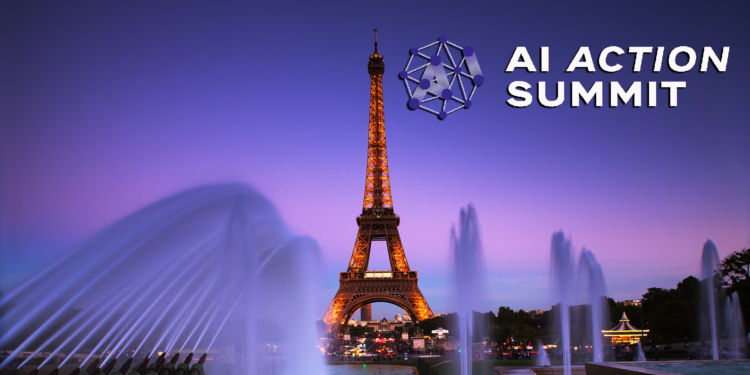The recent AI Action Summit in Paris has underscored the growing global divide over the regulation, governance, and strategic deployment of artificial intelligence (AI). Leaders from across the world gathered to discuss the future of AI, but the event was marked by tensions between major geopolitical players, particularly the United States, the United Kingdom, China, and the European Union. While many countries aimed to establish a framework for ethical AI development, others prioritized national security, economic interests, and technological dominance.
Diverging AI Governance Philosophies
One of the biggest points of contention at the summit was the refusal of the United States and the United Kingdom to sign a joint declaration advocating for “inclusive and sustainable” AI development. This declaration, endorsed by around 60 other countries, called for transparency, ethical considerations, and a global cooperative approach to regulating AI.
The U.S. and U.K. argued that the proposal would impose excessive regulations that could stifle innovation and hinder their competitive edge in the AI race. U.S. Vice President JD Vance emphasized that heavy-handed international regulation could slow down American AI advancements, especially in sectors like defense, cybersecurity, and commercial applications. The U.K. echoed similar sentiments, favoring a flexible regulatory approach that prioritizes economic growth and security over broad international guidelines.
On the other hand, European leaders, particularly French President Emmanuel Macron and European Commission President Ursula von der Leyen, strongly advocated for a cooperative regulatory framework. They warned of the risks associated with unchecked AI development, including ethical concerns, misinformation, and societal inequalities. Macron positioned Europe as a leader in ethical AI governance, urging global leaders to adopt stricter oversight to ensure AI serves the greater good rather than becoming a tool for corporate or governmental exploitation.
China’s Strategic Position and Expanding Influence
China also played a significant role in the summit, with Vice Premier Zhang Guoqing attending and expressing Beijing’s support for international cooperation in AI governance. China signed the joint declaration, signaling its willingness to participate in global AI discussions, though many analysts view this move as strategic rather than purely cooperative.
China has aggressively expanded its AI capabilities, competing with Western technology firms in areas such as generative AI, machine learning, and surveillance technologies. The country’s release of the DeepSeek chatbot—designed to rival ChatGPT—has intensified competition with American AI firms. While China supports regulatory discussions on the international stage, critics argue that it continues to use AI for domestic surveillance and censorship purposes, raising concerns about the country’s true commitment to ethical AI practices.
Tech Leaders Call for Balance Between Innovation and Ethics
Alongside political leaders, major tech executives also attended the summit, emphasizing the need for a careful balance between AI innovation and regulation. CEOs from major companies, including OpenAI, Google, and Microsoft, warned that AI’s rapid development poses risks if not managed properly.
OpenAI’s Sam Altman spoke about the nearing reality of Artificial General Intelligence (AGI) and the potential dangers it could bring if not properly controlled. Alphabet CEO Sundar Pichai highlighted the need for continuous international discussions on AI safety and security. While many tech leaders agreed that AI governance is necessary, they also cautioned against overly strict rules that could limit research and development.
Environmental and Social Concerns Add to the Debate
Beyond regulatory disagreements, the summit also brought attention to AI’s environmental and social impact. Experts raised concerns about AI’s high energy consumption, particularly in the development of large-scale models like ChatGPT and Google’s Gemini. AI’s carbon footprint has been growing, with data centers requiring enormous amounts of electricity and water for cooling, further intensifying the need for sustainable AI solutions.
Additionally, there were discussions about how AI could exacerbate existing inequalities. Christy Hoffman, general secretary of the UNI Global Union, warned that AI-driven automation could displace millions of workers, further widening the gap between rich and poor nations. The summit highlighted the importance of involving workers, policymakers, and industry leaders in shaping AI’s role in the workforce.
Conclusion: A Fragmented Global AI Landscape
The Paris AI Summit illustrated the deep divide among global powers on AI governance. The refusal of the U.S. and U.K. to sign the joint declaration underscores their reluctance to commit to an international AI regulatory framework that might constrain their competitive edge. Meanwhile, Europe continues to push for ethical oversight, while China seeks to influence global AI governance while expanding its own AI capabilities.
As AI continues to evolve, the lack of a unified global approach could lead to a fragmented regulatory landscape. Without international cooperation, nations may impose conflicting regulations, creating barriers to AI development and deployment. The summit demonstrated that while AI presents tremendous opportunities, it also poses significant challenges that require careful consideration and collaboration among world leaders.
Moving forward, it remains to be seen whether future summits will bridge these geopolitical divides or further entrench them. One thing is clear—AI has become a crucial point of contention on the global stage, shaping not only technological advancements but also international relations and power dynamics.

















